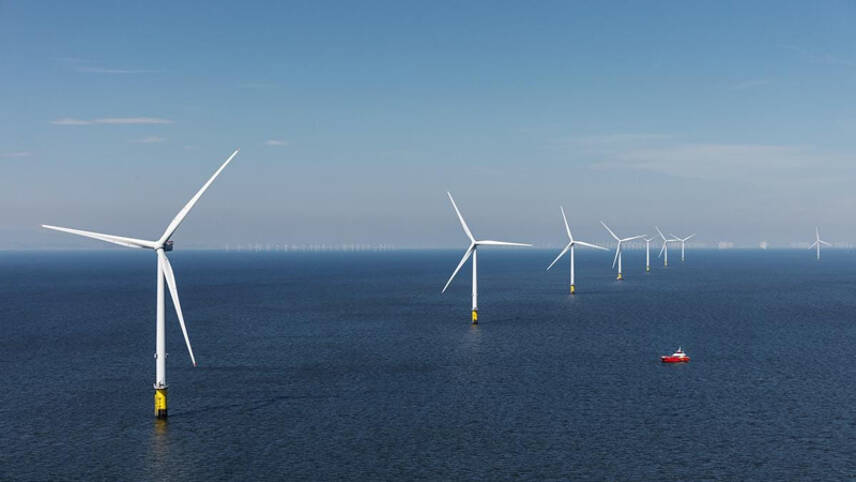Register for free and continue reading
Join our growing army of changemakers and get unlimited access to our premium content

Image: Orsted. Pictured: The Hornsea One wind farm.
This according to a report, published by the DWS Research Institute, with a scorecard ranking European countries by measuring their progress against their respective 2030 climate-related targets.
In line with the European Climate Law, the EU has committed to reducing greenhouse gas (GHG) emissions by a minimum of 55% by 2030 compared to 1990 levels. Conversely, the UK has established a target of reducing emissions by 68% by 2030 against the same baseline.
The report highlights that despite leading Europe in reducing greenhouse gas (GHG) emissions since 1990, the UK finds itself in a position where it needs to significantly increase its use of renewable energy sources beyond its power generation sector.
According to the scorecard, while the UK stands at a moderate position among European countries in terms of renewables contributing to electricity production, it falls to the bottom of the list when considering the share of renewables in the overall energy mix, trailing behind Belgium and the Netherlands.
A study from last year found that, despite the UK’s increasing adoption of renewable energy, progress towards achieving its net-zero targets could be hindered in the upcoming years by challenges in sectors such as buildings, aviation and shipping, which are more difficult to decarbonise.
The new report concludes that the UK has a very low probability of achieving its energy as well as transportation decarbonisation targets, underscoring the need for enhanced policy support and increased investment.
The UK currently ranks last on green spending out of the five biggest Western European economies, lagging behind France, Germany, Spain and Italy.
And more recent research revealed that nearly two-thirds of UK energy companies have either shifted or intend to shift investments away from the UK to a market with supportive policies for their sustainability goals, risking a potential £115bn investment.
The DWS research institute has additionally raised concerns about the climate resilience of the UK’s urban infrastructure and international supply chains.
Policy uncertainty: A challenge for the global energy sector
In related news, a separate report from assurance and risk management firm DNV has revealed that nearly two-thirds of energy professionals worldwide identify political uncertainty as the primary threat to the industry over the next year.
This is based on a survey of nearly 1,300 senior energy professionals globally, emphasising the sector’s concern regarding the upcoming series of elections and potential shifts in policies across the globe.
In 2024, elections are scheduled in more than sixty nations, collectively representing approximately half of the global population.
The report notes that as more mature low-carbon energy systems are established, energy systems could become more resilient to political risks in the future. However, the current transition requires political and economic stability, appropriate policies and regulations and a level of certainty regarding their continuity.
Nonetheless, a majority of the survey respondents (72%) agreed that the global energy transition is a long-term trend still accelerating despite the impacts of the current geopolitical turmoil worldwide.
Related news: UK accused of ‘going backwards’ on energy security since 2022
Related news: G20 nations falling short on decarbonisation policies, Bloomberg research reveals


What profit is there to the share-holder in developing new technologies, when greater profits can be found elsewhere?
That’s life.